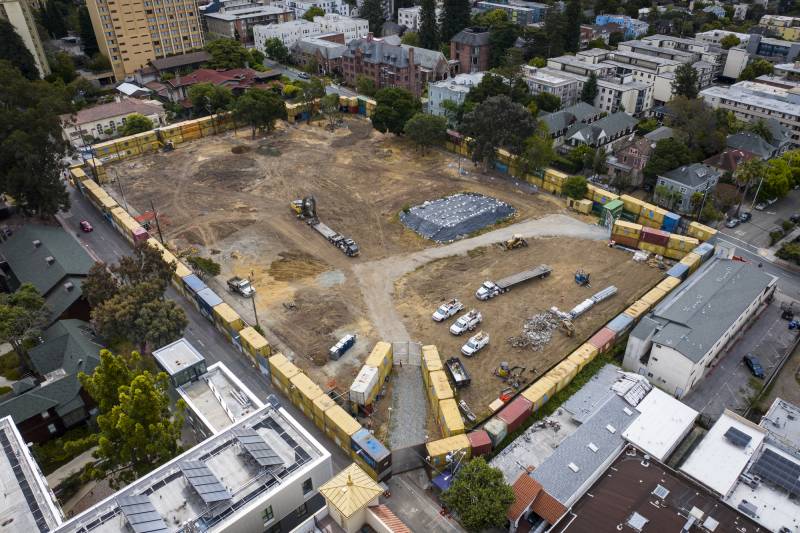The start of construction at People’s Park comes nearly two months after a California Supreme Court ruling cleared the way for UC Berkeley to break ground.
That decision ended a case stemming from an environmental lawsuit first brought against the university in 2021 by two neighborhood groups, Make UC A Good Neighbor and the People’s Park Historic District. Pushing against the university’s Long Range Development Plan, which aims to add nearly 12,000 student beds among other facilities, advocates argued that the park should be protected as a historic landmark.
“Everybody’s grieving,” Lisa Teague, a local volunteer and longtime park activist, said of the construction. “For the people who’ve been fighting for it for 40, 50 years, or even all 55 years, it’s devastating. That’s a significant part of your life.”
The university originally purchased the lot that would become People’s Park in the 1960s. After the land sat abandoned for nearly a decade, collecting garbage and old cars, Berkeley residents began turning the space into an open park and a gathering spot for community activists. It was around this time that UC Berkeley fought to reclaim the land, beginning the decades-long dispute over its right to develop.
Still, People’s Park persisted as the city’s primary open green space and a reliable location for unhoused individuals to find resources and medical assistance. Some neighbors, meanwhile, expressed concerns over crime and recreational drug use taking place in the area.
Although Teague called the loss of People’s Park a “huge disappointment,” she noted that volunteers have continued their efforts to support the community. They’ve been meeting at the Chuck P. Herrick Peace and Freedom Memorial Park, a tiny triangle of open space at the intersection of Dwight Way and Telegraph Avenue, to continue providing residents with mutual aid services.
Dan Mogulof, a spokesperson for UC Berkeley, said the student housing unit should be open by 2027.
“The university really appreciates the profound amount of support we’ve received from the mayor, from elected representatives in Berkeley, from our students [and] from members of the community,” Mogulof said.
He added that the university is also in the process of securing a contractor for the supportive housing component of its development plan, which would provide the city with 100 units of new housing.
